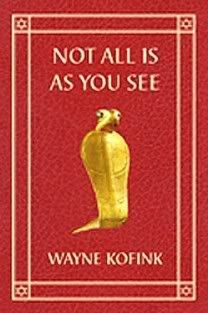WHERE'S THE BORDER? (PART 2)

Some more on borders this week. There was a time when my home state of Illinois had an international boarder. Well, it wasn't Illinois in those days. It was the Northwest Territory. Up until 1803 the Mississippi River formed the boundary between the United States and French Louisiana. So the area that would become Illinois bordered a foreign country. Fortunately, good old Tom Jefferson had the sense to buy Louisiana from Napoleon at a clearance sale. He was one smart man. I wish we could turn up more presidents like him. Of course, he'd never get elected today since even in his own day he was labeled an atheist and he liked French cooking. Not to mention that his Vice-President, Aaron Burr, shot the former Secretary of the Treasury Alexander Hamilton to death in a duel. At least Vice-President Cheney only wounded someone.
Anyone looking quickly at a map of the United States would conclude that the Mississippi River is still the western border of Illinois. Not quite true, as you would discover if you tried to travel from Chicago to Kaskaskia. I'm not sure why you'd want to go to Kaskskia since only nine people live there, but if you did, you'd have to cross the Mississippi into Missouri and then drive to Kaskaskia. It's west of the river. It wasn't always there, but it is now, and that's an interesting tale.
Kaskaskia was founded in 1703 by the French where the Kaskaskia River meets the Mississippi. The French abandoned the village after the French and Indian war. The British occupied the site and built Fort Gage there. Now the story gets good. On July 4, 1778, during the Revolutionary War, General George Rodgers Clark captured Fort Gage without firing a shot. I'll bet all of you East Coasters thought the Revolutionary War was only fought in the East. Hah!
Kaskaskia became one of the largest cities in the west, having around 7,000 inhabitants at its peak. It was the capital of the Illinois Territory and the first capital of the State of Illinois. But in 1820 the capital was moved to Vandalia, and the city was in trouble. (What goes around comes around. Thanks to Abe Lincoln and a bunch of other legislators, the capital got moved to Springfield in 1837. Nya-nya-nya-nya-nya!) The city really sunk when an 1844 flood nearly wiped the town out. They moved the town further south, but it flooded again in 1881. The old town and original state house (pictured) disappeared under the waters, and the Mississippi cut a new channel to the east turning the area around Kaskaskia into an island.
I have one more border story that has a vague connection to Kaskaskia. In 1815 a 21-year-old-lawyer Daniel Pope Cook moved to Kaskaskia. Eventually he would move to Washington and become a friend of John Quincy Adams. He was influential in Illinois politics, becoming the first Attorney General and second congressman from Illinois, but he died at the young age of 33. Cook's uncle, Nathaniel Pope, had been territorial representative of Illinois in congress. (By the way, Nathaniel's brotherJohn was the Senator from Kentucky). As Illinois prepared for statehood, Pope got the congress to move the border north 41 miles which put Fort Dearborn (the site of Chicago) in Illinois instead of Wisconsin.
My gosh, think of the consequence of putting Chicago in the Dairy State. Maybe the Chicago Bears would be the Chicago Cows. The Chicago Cubs the Chicago Calves. Can you imagine Al Capone living in Wisconsin? (Actually, he did have a place in Wisconsin. I've been there.) Can you imagine Elliot Ness arresting Capone and saying, "Now, Al, you've been a bad boy, so we're gonna make you muck out all the cattle barns for the next 20 years. I hope you learn your lesson. You betcha." All of Chicago owes a vote of thanks to Nathaniel Pope for preventing that disaster.
Anywho, as Northern Illinois (not Southern Wisconsin) grew, it got divided into counties. Guess what thy named the one in the north-east with the growing village of Chicago? They couldn't name it Pope County because they already had named one in Southern Illinois for Nathaniel Pope. So they named it Cook County, after Nathaniel's nephew Daniel Pope Cook. 'Member him? You might find it interesting to know that Cook married Catherine Edwards, the daughter of Illinois' third governor, Ninian Edwards. Catherine had a brother, also named Ninian, who married Elizabeth Todd whose sister Mary Todd, married Abraham Lincoln. Oh yes, Lincoln appointed Nathaniel Pope's son, John, (who was also a second cousin of Mary Todd Lincoln) a Major General in command of the Army of Virginia. Daniel Cook's son John was also made a Major General. From what I can tell, most of the male population of the Union states were made generals at one time or another during the Civil War, except for Lincoln's own son Robert Todd Lincoln who only got to be a Captain.
I hope to write about old honest Abe for next week.
May the Lord bless you on your journey and greet you on your arrival.
Wayne
2784





